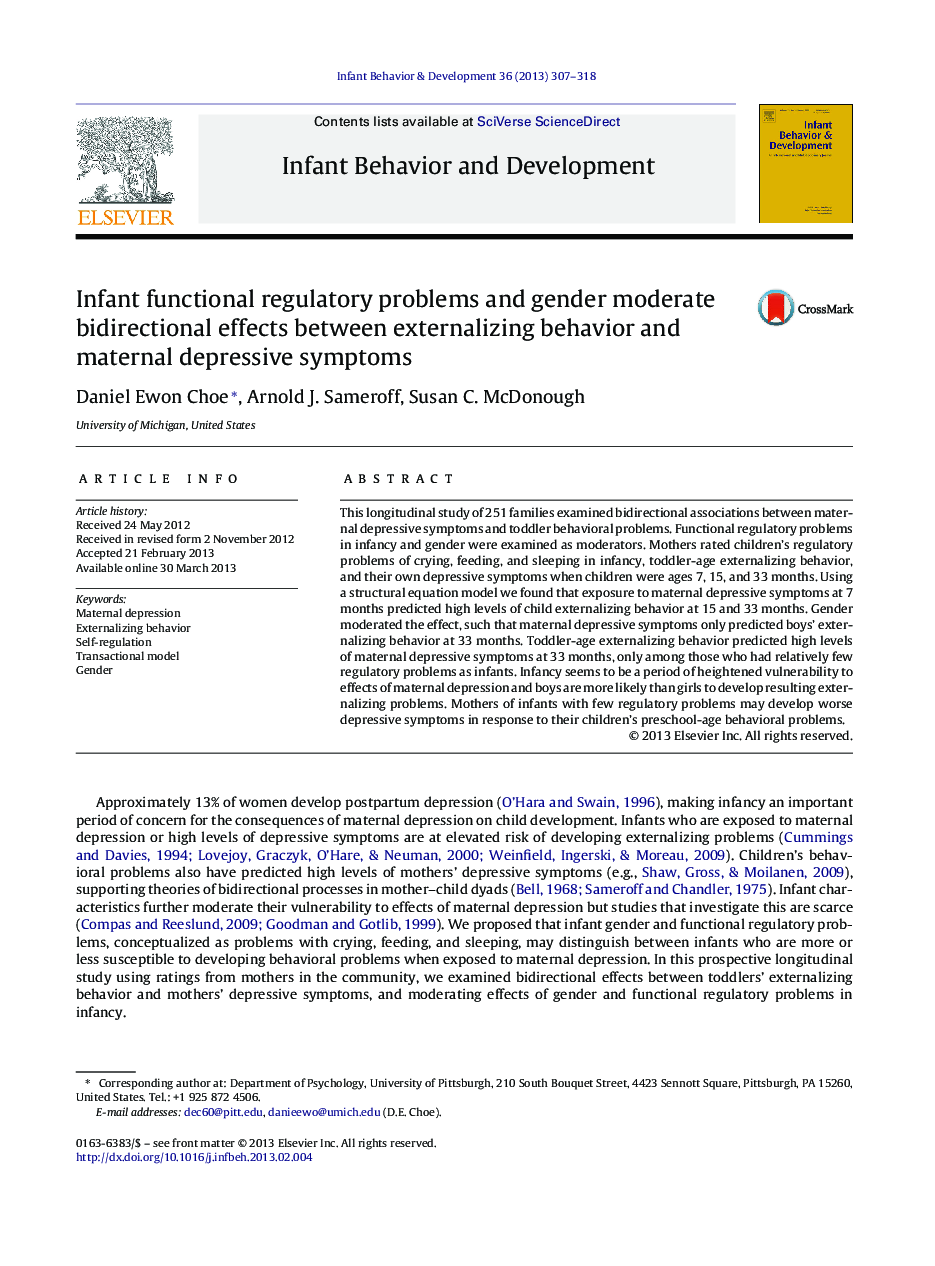| Article ID | Journal | Published Year | Pages | File Type |
|---|---|---|---|---|
| 917239 | Infant Behavior and Development | 2013 | 12 Pages |
This longitudinal study of 251 families examined bidirectional associations between maternal depressive symptoms and toddler behavioral problems. Functional regulatory problems in infancy and gender were examined as moderators. Mothers rated children's regulatory problems of crying, feeding, and sleeping in infancy, toddler-age externalizing behavior, and their own depressive symptoms when children were ages 7, 15, and 33 months. Using a structural equation model we found that exposure to maternal depressive symptoms at 7 months predicted high levels of child externalizing behavior at 15 and 33 months. Gender moderated the effect, such that maternal depressive symptoms only predicted boys’ externalizing behavior at 33 months. Toddler-age externalizing behavior predicted high levels of maternal depressive symptoms at 33 months, only among those who had relatively few regulatory problems as infants. Infancy seems to be a period of heightened vulnerability to effects of maternal depression and boys are more likely than girls to develop resulting externalizing problems. Mothers of infants with few regulatory problems may develop worse depressive symptoms in response to their children's preschool-age behavioral problems.
► We tested a transactional model of maternal depression and toddlers’ externalizing. ► Moms’ depressive symptoms in infancy predicted more toddler externalizing behavior. ► Boys were more susceptible to maternal depression and behavioral problems. ► Well-regulated infants later behavior predicted an increase in moms’ depression.
